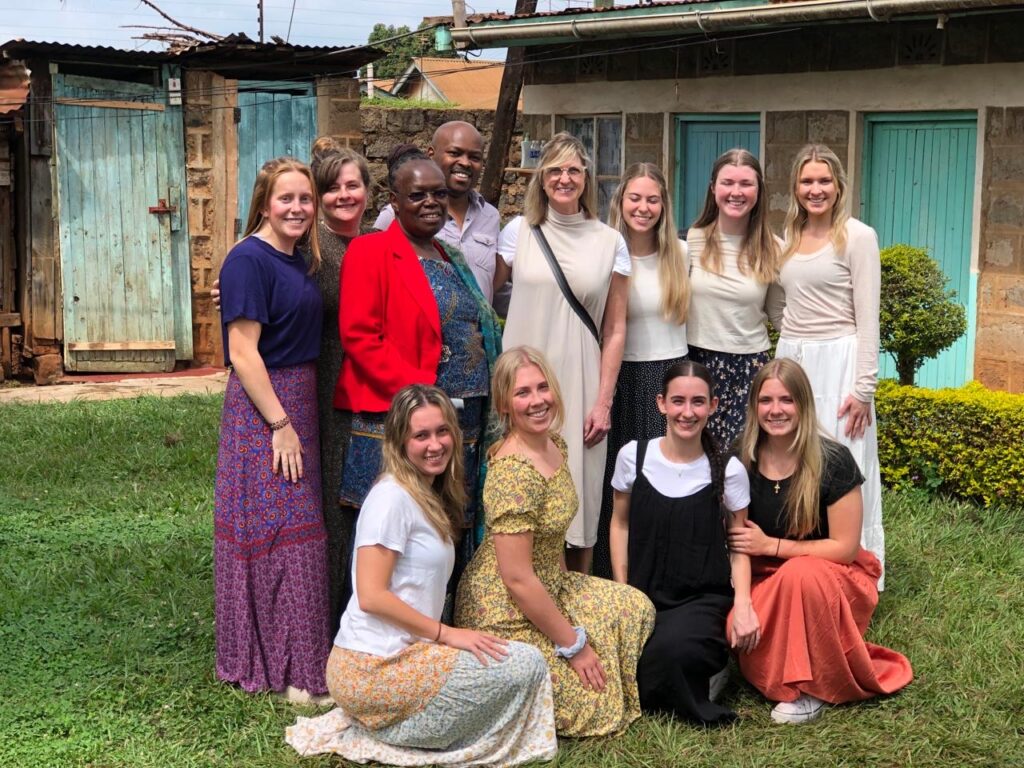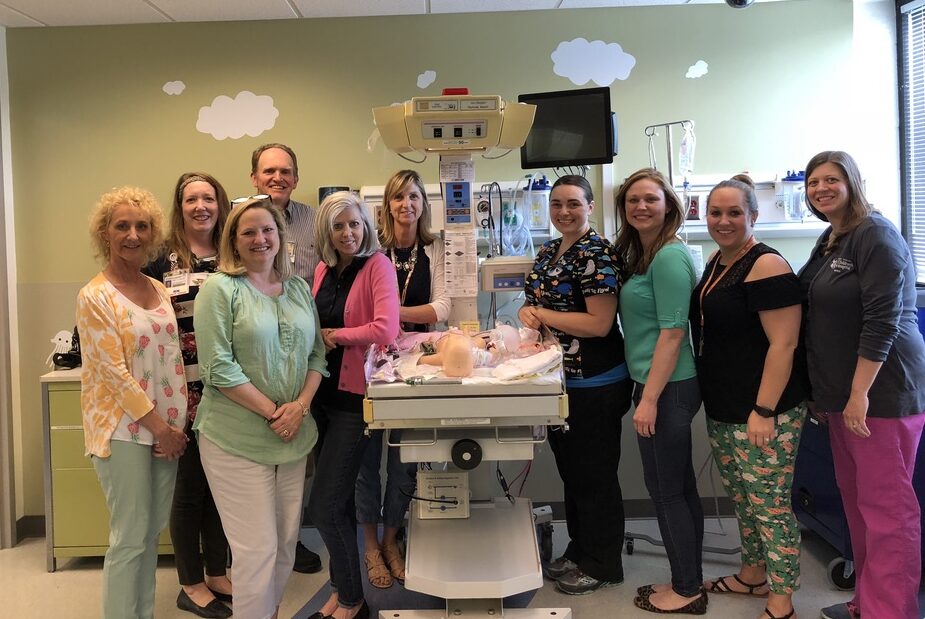Assistant Dean of Simulation Susan Hébert’s career spans nearly four decades. It began after she graduated from Illinois Wesleyan University with a BSN.
“My first nursing position was in a neonatal intensive care unit in a Level III regional perinatal center in Springfield, Illinois,” said Hébert. “I worked at this facility for the first 10 years of my career in various roles, including bedside RN, unit educator, and as a regional perinatal educator.”
She says that early experience was extremely rewarding and helped show her the transformative power of simulation.

“It allowed me to directly see the impact simulation training had in improving neonatal outcomes in the state,” said Hébert. “The position also prompted my desire to further my nursing education and complete a PhD in nursing, because I could directly see the power of gathering statistical data to improve clinical outcomes.”
She later received her Master of Science in medical simulation from Drexel College of Medicine and a PhD in nursing from UT’s College of Nursing.
Fate intervened in 2013, when she followed her youngest daughter to college—a decision Hébert describes as one of the best in her life.
“She came to UT to play soccer, and because I did not want to miss the experience of watching her play, I began looking for a position in the South,” said Hébert. “I soon learned the College of Nursing had just begun a search for someone to assist them in starting a simulation program, so I applied and was offered the position.”
Hébert oversees all simulation activities for undergraduate and graduate students. She has led the college through three accreditations and reaccreditations from the Society for Simulation in Healthcare . She emphasizes the importance of professional development for faculty, ensuring that they are equipped to provide students with the best simulation-based education.
“When faculty begin a role that requires them to teach in simulation, we provide them with additional professional development to ensure they understand and apply the best practices of health care simulation and prepare them for teaching in simulation environments,” said Hébert. “The educational offerings we provide students within simulation allow us to prepare them for training in a safe learning environment and evaluate their readiness to practice.”
Hébert’s impact expands far beyond Rocky Top. In 2017 she was asked to assist in developing a student travel program in Kenya, and she first traveled there herself in 2019.
“I felt honored to have the opportunity to lead an international student experience and share mentorship and knowledge in neonatal resuscitation and simulation best practices with nurses in a low-resource area of the world,” she said.
As a first-generation college student, Hébert knew that experiences like international travel were pivotal to growth for students.
“I flew on an airplane and experienced the world outside of the continental United States for the first time during my undergraduate studies,” she said. “This experience allowed me to grow in many ways. I also fully understand many students may only have international travel opportunities to experience nursing outside the US if the college provides it.”
The college’s program in Kenya has expanded greatly over the years. What started as an international experience for students has developed into a long-term partnership with WAKA Training Institute and Hospital. Hébert has been an instrumental part of that growth.

“The newly formed partnership includes the establishment of an international clinical opportunity for UT students to learn from Kenyan nurses,” she said. “This helps to generate scholarships for WAKA students, develop a network of research connections for UT students and faculty in Kenya, and provides collaborative opportunities for UT faculty to provide best practices in nursing education, including simulation.”
Hébert’s international travels have not only broadened her horizons but also shaped her approach to learning and teaching.
“Experiencing the engagement and excitement for learning from the nurses in Kenya was a surprise, and it has given me a newfound appreciation for the abundance of professional development opportunities nurses in our country have,” she said. “To support learning for our students, we must first ensure their readiness to understand and explain why and how the content they are challenged to learn in academic nursing programs enhances future practice in the nursing role. Most students come to us with a desire and passion to become nurses, but they may need help understanding why the content we ask them to learn is critical to safely delivering care.”
As she looks toward the future, Hébert sees a world where borders blur and compassion knows no bounds—a world shaped by the hands of nurses.
_____
CONTACT:
Kara Clark (865-974-9498, [email protected])
